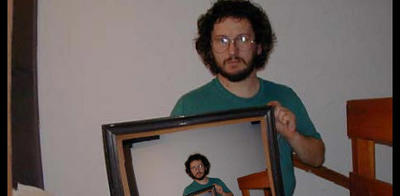What is a proof?

Formally, a mathematical proof is a sequence of expressions in a formal language. An expression can be entered in the sequence if it follows from earlier expressions using rules of inference also expressed in the formal language, or if it belongs to a finite set of expressions called axioms. The last expression in the sequence is what the proof proves. It is called a theorem.
In real life, mathematicians do not prove their theorems in formal languages. Basically this is the accepted definition of a mathematical proof: 'A proof is a proof until proved otherwise'
To prove things can make you rich. This page lists puzzles worth between 50 and more than a million dollars. Click here to read how 'The Eternity Puzzle' made someone 1.6 million richer. One million is waiting for the first to settle Riemann's hypothesis.
A proof of Riemann hypothesis 'is perhaps the most tantalising goal in mathematics today. If true, it tells us that prime numbers, which are those exactly divisible only by one and themselves, are scattered utterly randomly along the number line. If not, then mathematicians may be able to predict where the prime numbers fall.' - Source
Some time ago Louis de Branges de Bourcia, a professor of mathematics at Purdue University in Indiana, issued a press release claiming he had proved the Riemann hypothesis is true. He can not collect the prize money straight away: 'To claim the one million dollar prize money put up by the Clay Mathematics Institute in Cambridge, Massachusetts, de Branges must first publish his paper in a journal and then the work must survive two years of scrutiny by the mathematics community.'
A lot of mathematics deals with infinity in one form or another. Click here to take it for a spin.
0 Comments:
Post a Comment
<< Home